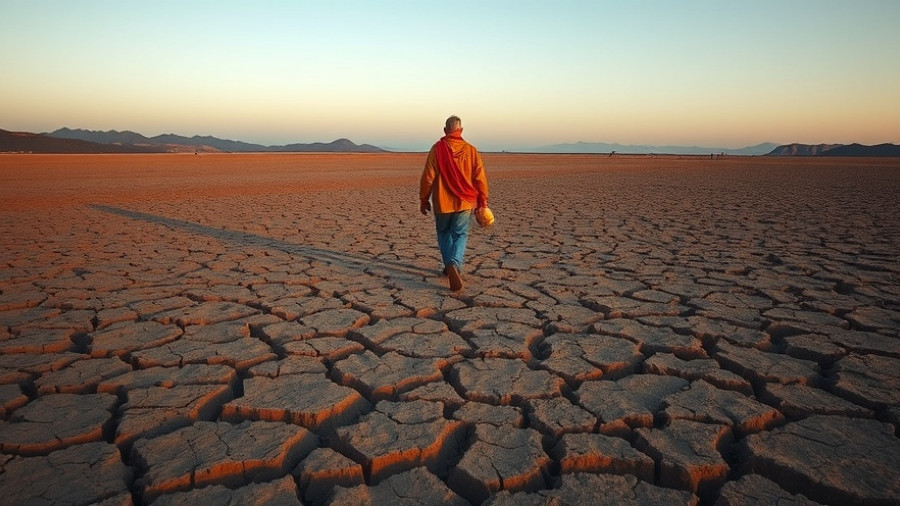
The Alarming Link Between Climate Crisis and Poverty in Africa
Recent studies reveal a harrowing intersection between climate change and poverty, underscoring how environmental degradation significantly exacerbates the plight of the world's most vulnerable populations. A groundbreaking report by the United Nations Development Programme and Oxford University highlights that about 887 million impoverished individuals live in regions susceptible to climate hazards such as extreme heat and flooding. This alarming statistic illuminates the urgent need for integrated approaches addressing both climate resilience and poverty alleviation, particularly in Africa, which faces some of the most severe consequences of climate change.
Why This Matters: The Role of Africa in the Global Economy
Business leaders and policymakers must grasp the profound economic implications of climate-induced poverty. The report emphasizes that nearly 80% of the world’s poor reside in areas exposed to significant climate risks, particularly in sub-Saharan Africa. As these communities struggle against environmental shocks, their economic productivity is threatened, affecting the broader economic landscape. With Africa's increasing integration into the global economy, understanding this dynamic is essential for stakeholders aiming to leverage Africa's resources while addressing climate challenges.
Addressing Past Oversights: Historical Context
Historically, discussions surrounding poverty have frequently occurred in isolation from environmental concerns. The narrative that poor socio-economic conditions are standalone issues fails to capture the intricate web of interactions influenced by climate change. Now more than ever, integrating climate action into developmental policies is critical. The Drawdown report further supports that proactive climate solutions can help alleviate poverty by enhancing overall well-being. Such win-win strategies are not only ethically imperative but economically prudent.
Future Predictions: Climate Hazards Ahead
Forecasting the coming decades, regions heavily afflicted by poverty today are likely to experience increased temperature rises, compounding their challenges and increasing inequalities. Policymakers must therefore prioritize resilience-building strategies that go beyond immediate aid and are rooted in sustainable development. By investing in renewables and enhancing agricultural resilience, stakeholders can create environments that protect vulnerable populations and stimulate economic growth.
Actionable Insights for Stakeholders
Policymakers, investors, and NGOs are called to action to leverage the insights from these alarming reports. Advocating for climate solutions that harmonize with poverty alleviation efforts not only saves lives but also fosters economic growth. The responsibility lies in understanding that climate change is as much a socio-political issue as it is an environmental one. Collaborative funding initiatives can align efforts toward achieving sustainable outcomes that benefit both the planet and its people.
In conclusion, as Africa stands at the crossroads of the global economy, acknowledging and addressing the nexus between poverty and climate change is crucial. Business leaders and policymakers must act decisively to redirect resources into sustainable practices that build resilience against climate catastrophes while boosting economic vitality. The time to embrace a holistic approach is now to safeguard the future of both vulnerable populations and the continent at large.
 Add Row
Add Row  Add
Add 


Write A Comment